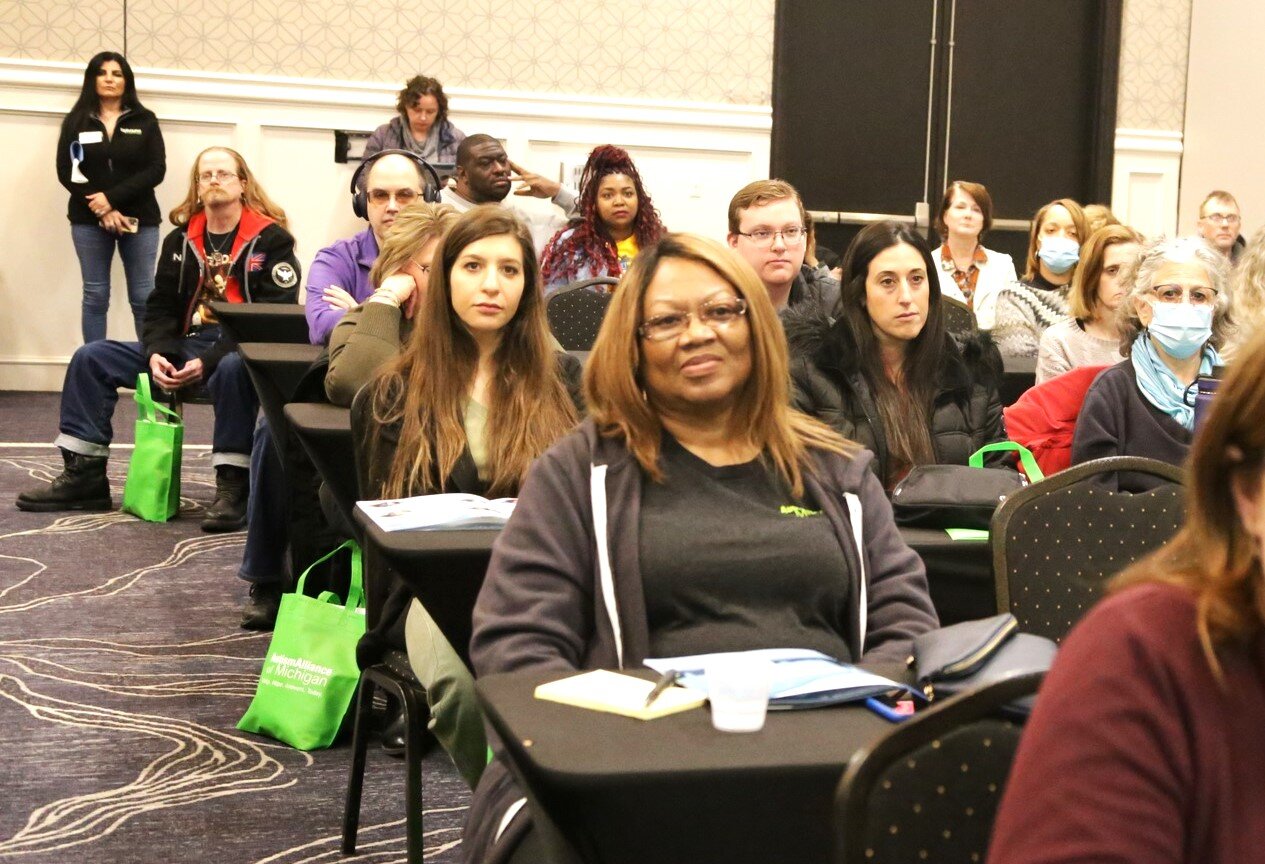 The conference will include four break-out sessions offering a choice among 15 different topics.The Autism Alliance of Michigan (AAoM) will host its first “Navigating Autism Today Conference” of the year on Friday, March 8 at the Suburban Collection Showplace in Novi. Presented by the Children’s Foundation, the conference begins with registration and breakfast.
The conference will include four break-out sessions offering a choice among 15 different topics.The Autism Alliance of Michigan (AAoM) will host its first “Navigating Autism Today Conference” of the year on Friday, March 8 at the Suburban Collection Showplace in Novi. Presented by the Children’s Foundation, the conference begins with registration and breakfast.
The biannual conference’s mission is to provide people with autism spectrum disorder (ASD), their loved ones, caregivers, and anyone affected by autism with education, resources, and support in early diagnosis, education, and adulthood. Attendees will hear evidence-based content aligned with the lifespan of needs presented by autism — and leave feeling better equipped to navigate autism at all ages.
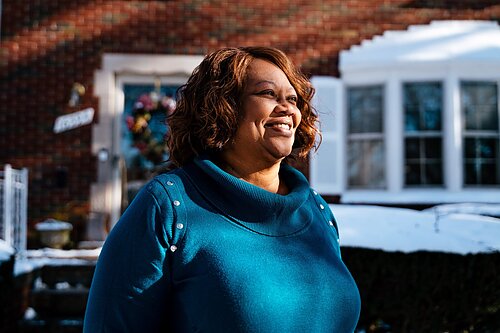
While the conference is in Novi, AAoM community resource specialist Joanna Lofton says one goal of the conference is to show guests the resources available in their area.
“What we try to do is make sure it’s not focused just on one specific issue such as speech and language,” Lofton says, “We cover the entire spectrum of resources so that we can cover the entire age range and disability range.”
Keynote speaker Dr. Tisa Johnson-Hooper will speak about the intersection of autism screenings, diagnosis, intervention, and outcomes with the social determinants of health, the conditions in the environments where people are born, live, learn, work, play, worship, and age. Those living with autism, their families, and loved ones often face systemic barriers, provider barriers, financial barriers, waitlists, cultural differences, and other barriers.
A recent example Johnson-Hooper saw in her practice was a child whose family is new to the United States who speaks English as a second language. The family attributed the child’s language delay to moving to a new country and the child not being surrounded by extended family and a community of native speakers.
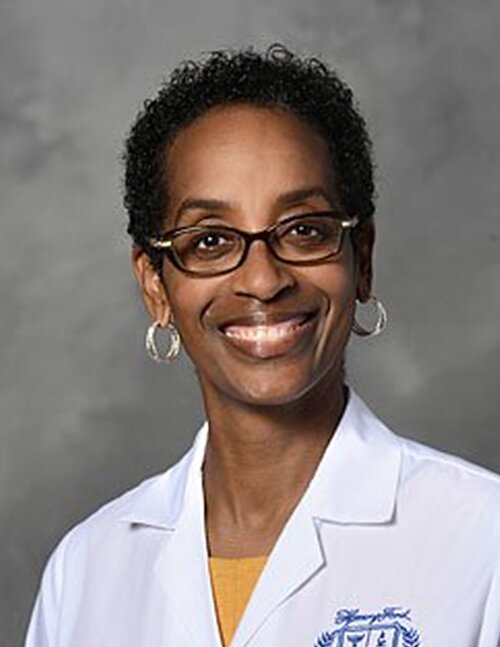
“In the beginning, [being in a bilingual home] does impact it, but it shouldn’t impact that social communication impairment,” Johnson-Hooper says. “That’s a subtlety that they were not necessarily aware of. They saw the symptoms but attributed it to the fact that this is not their native tongue, and therefore they weren’t acting on those concerns even when they had seen the pediatrician.”
These barriers can impact the quality of care by providers, how seriously symptoms are taken, the timing of screenings, and more impacts that can affect a person throughout their life.
“Adults with a developmental disability have poorer outcomes health-wise,” Johnson-Hooper says. “So, they experience those basic health diseases like diabetes, obesity, and hypertension at disproportionate rates.”
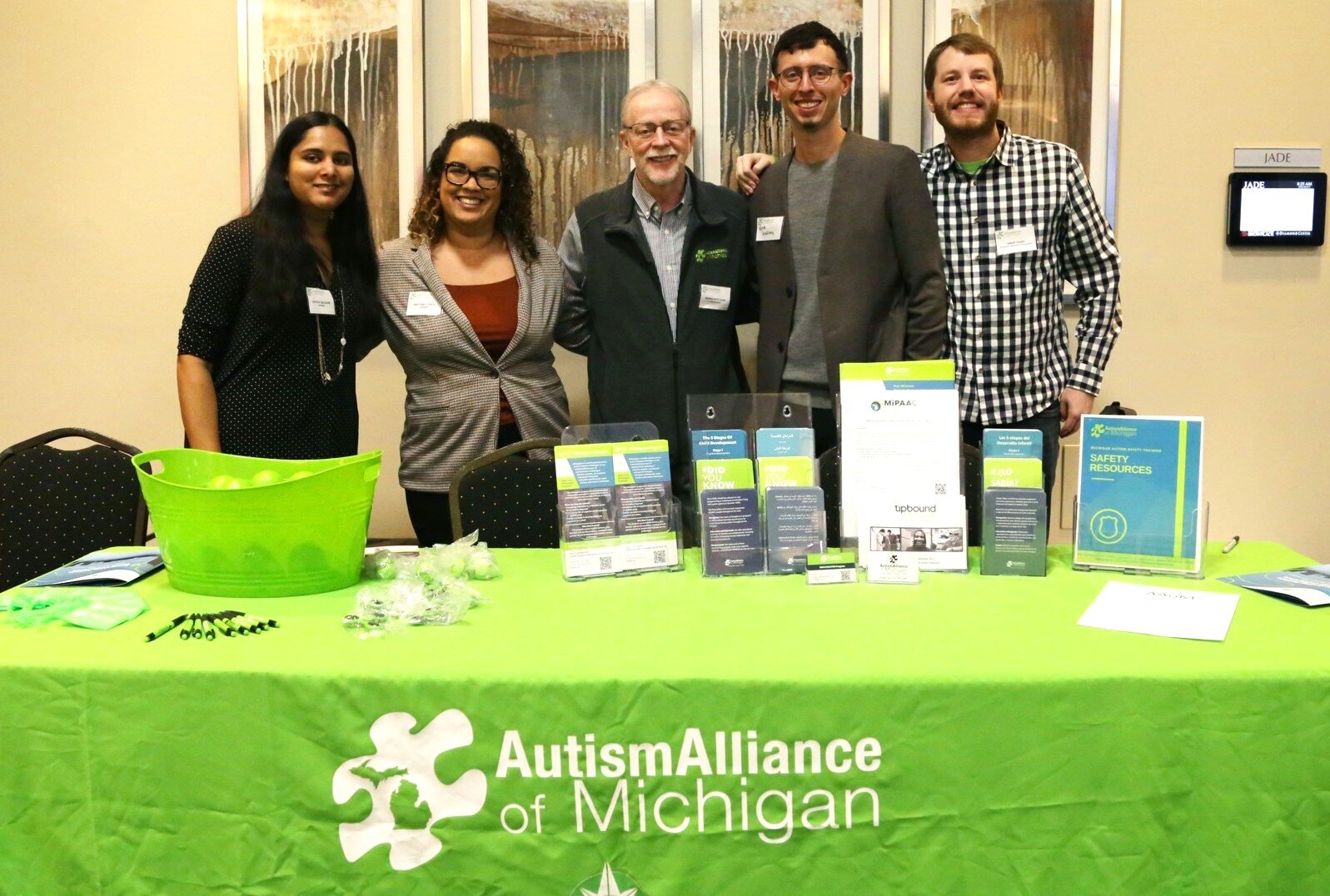 AAoM staff and MiNavigators will provide free professional consultation to individuals and families.
AAoM staff and MiNavigators will provide free professional consultation to individuals and families.
Black Americans are at a greater risk of having diabetes, obesity, and severe hypertension. And when it comes to ASD, Black children receive diagnoses later than white children and are less likely to be identified with ASD than white children, suggesting socioeconomic or other barriers lead to a lack of or delayed access to evaluation, diagnosis, and services.
Over 40 vendors and sponsors including Henry Ford Health, Laugh & Learn Therapy, and Heartland Center for Autism, and others focused on providing resources for people living with autism will take part and create even more networking opportunities for attendees.
“Most of these vendors are service providers,” says Erik Gallery, the director of statewide access and early identification initiatives for AAoM. “So, there’s definitely options where if you’ve been exploring services, you’ll have the ability to actually talk to somebody if you’re wanting to get connected or wanting to gain access.”
AAoM staff will also be on-site, including Navigators from AAoM’s MiNavigator program. Navigators provide free professional consultation to individuals and families affected by ASD across the state. The MiNavigator table will allow attendees to connect and talk through concerns with a Navigator one-on-one.
“They can essentially get connected so that they’ll have an assigned Navigator to provide follow up beyond the conference,” Gallery says.
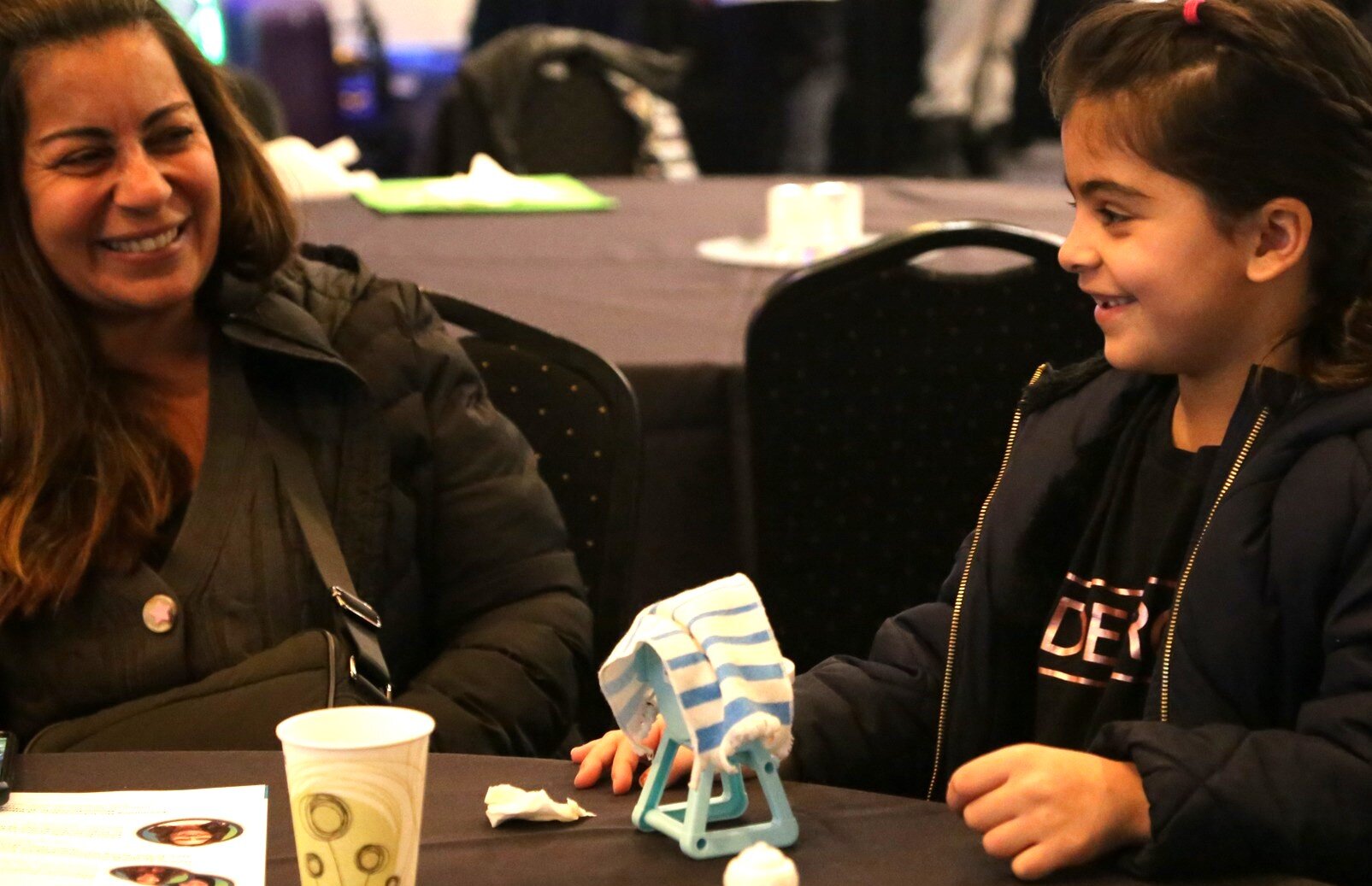 Attendees will hear evidence-based content aligned with the lifespan of needs presented by autism.The conference will also include four break-out sessions offering a choice among 15 different topics led by professional speakers allowing guests to design their days to fit their needs and interests.
Attendees will hear evidence-based content aligned with the lifespan of needs presented by autism.The conference will also include four break-out sessions offering a choice among 15 different topics led by professional speakers allowing guests to design their days to fit their needs and interests.
The first breakout sessions feature Sergeant Mark Boody of the Novi Police Department talking about autism safety awareness; certified financial planner Minoti Rajput on life planning for a child with special needs; and psychologist Abby Peskin presenting naturalistic developmental behavioral interventions as early intervention for children with ASD.
“Instruction on financial planning is one example of how the conference covers the entire lifespan of a person with ASD — a focus brought into the conference based on guest feedback,” Gallery says.
Financial planning is especially important because, without it, Lofton says people with ASD “can easily lose their services, their federal support, such as their Social Security and Medicaid, simply because you can’t have more than $2,000 in assets.”
This particular breakout session will also include updates to the SECURE Act, which expands automatic enrollment in retirement plans, and the ABLE Act. Signed into law in 2014, the ABLE Act allows people with disabilities and their families to set up savings accounts for disability-related expenses. It also gives people with disabilities the chance to be gainfully employed and earn over $2,000 in assets without losing services.
The next breakout sessions will include occupational therapists Rachel Robertson and Stephanie Olszewski of Diverge Community Services presenting on neurodiversity-affirming approaches to sensory processing and emotional regulation; clinical social worker Katy Levinson on parental anxiety and burnout; and special education teacher Megan Brockman from the My Relationships Project, and Michigan Developmental Disabilities Institute’s associate director for Training and Education on sexual health and safety; and Elizabeth Janks on future planning and improving health outcomes for people with autism and their caregivers..
 Afternoon sessions include Dr. Mari C. MacFarland, Adam McElyea, Joe MacFarland, and Ellie MacFarland on promoting social competence and independence; two sessions with professionals from Building Bridges Therapy Center: Stephanie Naberhaus on understanding Gestalt Language and Aubry Dodge, Cherie Le Penske, and Belinda Lee on oral care and desensitization; Karoline Kenville, Perdue Global University and Live and Learn Therapy, on ABA services; and Residential Opportunities INC’s Dr. Jeana Koeber on helping people with severe autism.
Afternoon sessions include Dr. Mari C. MacFarland, Adam McElyea, Joe MacFarland, and Ellie MacFarland on promoting social competence and independence; two sessions with professionals from Building Bridges Therapy Center: Stephanie Naberhaus on understanding Gestalt Language and Aubry Dodge, Cherie Le Penske, and Belinda Lee on oral care and desensitization; Karoline Kenville, Perdue Global University and Live and Learn Therapy, on ABA services; and Residential Opportunities INC’s Dr. Jeana Koeber on helping people with severe autism.
Those who are traveling can make reservations at the Hyatt in Novi which is located in the same building as the conference. Anyone interested in attending the event can register by clicking here. Additional questions related to the conference can be directed to AAoM at info@aaomi.org.

